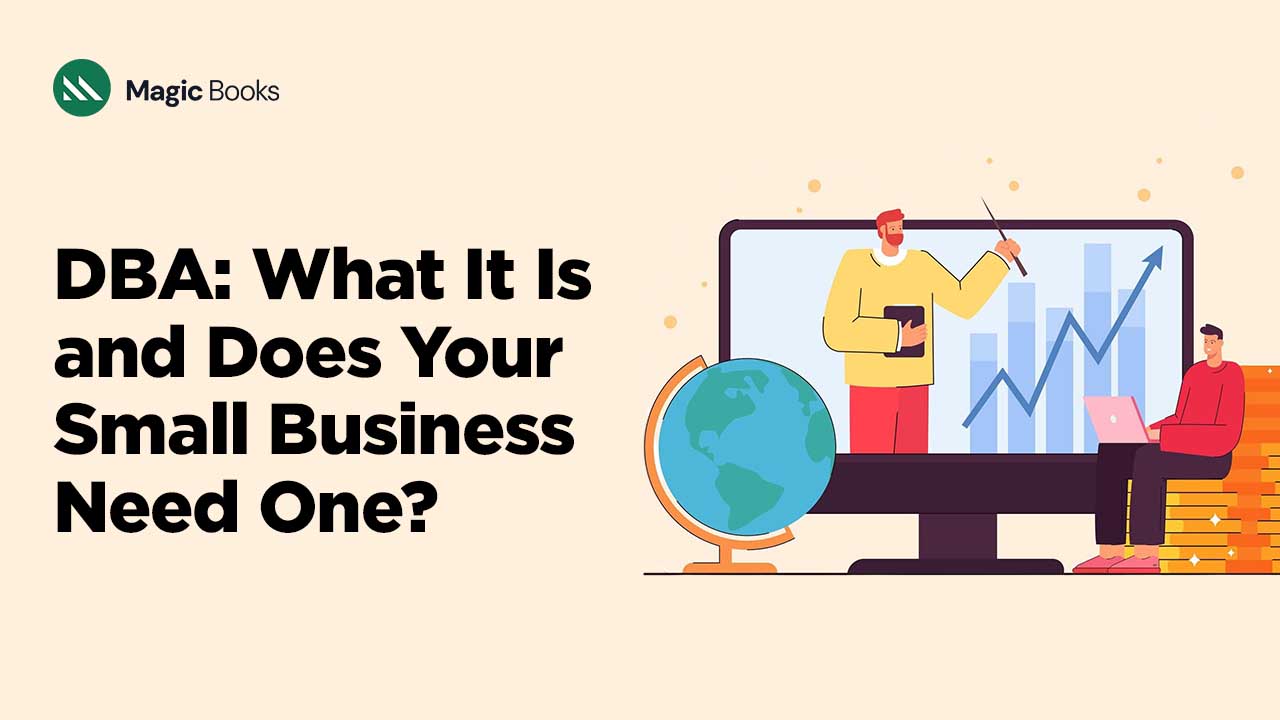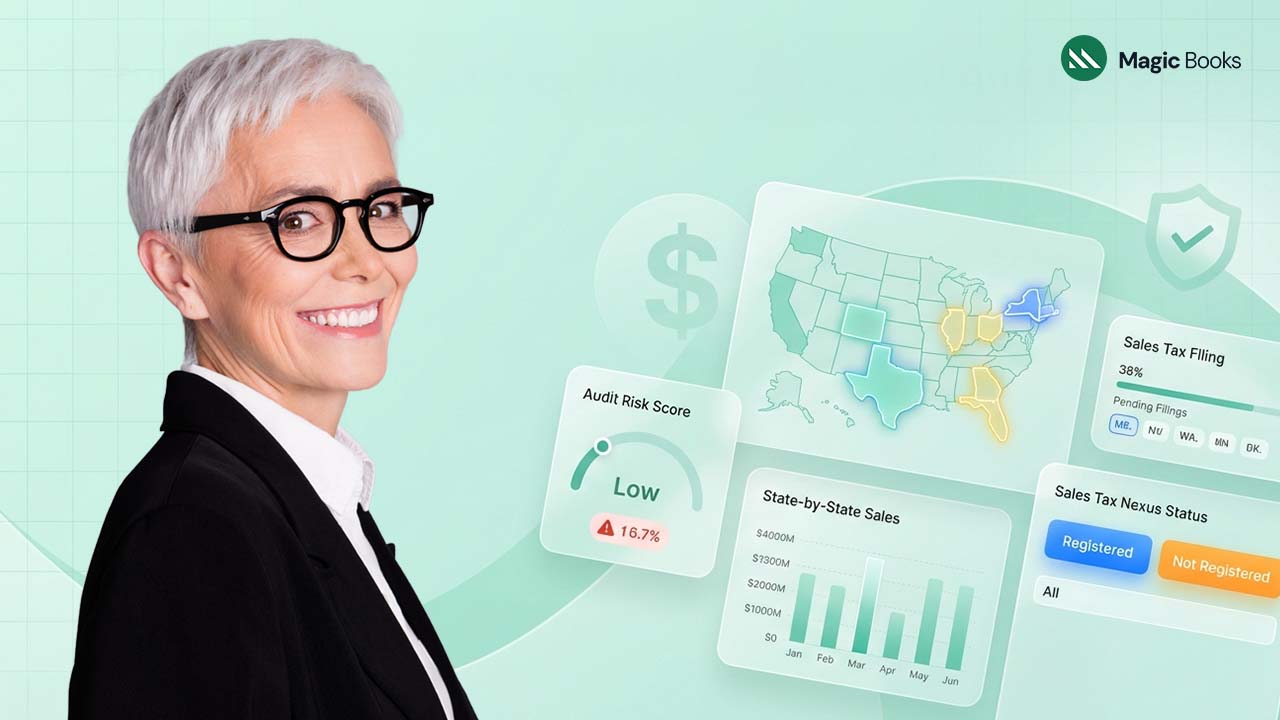When starting a new business, you must have done your market research, done some brand work and come up with a really cool name. But, this process needs some legal side of decision-making because you might not be familiar with the legal terminologies that get thrown around. We might throw just one terminology here which will help you navigate this “naming” process more efficiently and fluidly.
This is called DBA.
What does it mean?
When a person, team or corporation decides to do business under a name thats different than its legal name. It is usually referred to as assumed name, a fictional business name, or a trade name. Sometimes businesses might operate in the owner(s) name but some businesses operate under a DBA.
But is this necessary for your small business? We will let you decide that by the end of this blog. Let’s first understand everything that is DBA!
The DBA word might have made you a little nervous. You must be thinking of some “DMV” level process but it’s a straightforward and cost-effective way to officially use a business name without needing to incorporate or establish an LLC. Most for small businesses, that haven’t created a separate business entity, this is a helpful process because some banks require a DBA to open a business account.
Let’s put the legal and logistical part aside for a second.
Choosing a really remarkable DBA has significant marketing enhancement A compelling name grabs the attention of your consumers and conveys what the business offers and sets your brand apart. Apart from marketing, if you are looking to expand to different product lines, you can create a unique DBA for each brand without the whole lot hassle of forming a subsidiary. It does wonders if you are expanding to new states as well. If your existing brand name is already taken in that area, it will allow you to operate under a different name without starting from scratch.
These might seem very generic. Allow us to dig even little deeper into these advantages:
Advantages of DBA:
1: Every business owner should separate their personal and business finances and DBA makes it easier to open a business bank account much easier. Do you know why you need this separation of church and state when it comes to your finances? Let us tell you why: Let’s say your business faces a lawsuit (We hope you don’t), keeping personal and business finances separate helps you protect your personal assets. On a lighter note, separate accounts smoothen the entire accounting, tax preparation, and financial tracking. Let’s be honest, your clients and lenders will take you seriously only if you have a dedicated business account. Coming back to the logistical part of it, filing a DBA will help you gain access to an EIN (Employer Identification Number) and this enables you to set up that crucial business bank account and maintain financial separation.
2: If you’re thinking of growing your business, registering a DBA enables you to establish brand identities under a single owner without establishing additional legal entities. This adaptability is crucial, for companies seeking to broaden their range of products and services.
For example;
a) As a restaurant proprietor one might consider launching a bakery with a name while retaining the existing ownership framework.
b) In the tech industry a company could introduce applications or services individually managed under DBAs.
If you decide to operate in states beyond your current location state boundaries, as a business owner or operator entity need to comply with regulations by filing for qualification in each new state to prevent facing potential penalties for noncompliance and ensure legal status and operational legitimacy. Furthermore; The name registered on your certificate of authority in each state will coincide with your company’s legal title; however, there is the option to utilize a “Doing Business As” (DBA) designation when conducting business under an alternate brand identity, within those new jurisdictions.
3: Sole proprietors often find that filing, for a “Doing Business As” (DBA) name is the most affordable method to officially register their business name compared to options like incorporating or setting up an LLC which can be more complicated and costly, in terms of paperwork and fees involved in the process of registration.
Can I have multiple DBA?
Well, yes!
Technically there are no limits to the number of DBAs your business can use. This flexibility actually allows businesses to operate under different names for various reasons, which can be for targeting distinct markets, launching new product lines or even establishing presence in multiple locations. But always understand the legal side of this process (We can’t stress enough on this)
Here is the elephant in the room, do all businesses need a DBA?
Let’s answer that question, shall we?
For Sole Proprietorship and General Partnership:
It’s a legal requirement if you want to operate under a name other than your own. In many cases, Sole proprietorships and partnerships don’t have a separate legal entity from their owners. So, by default, the business name is the owner’s name. To use a more professional or marketable name though, you will need to register a DBA with your country or county. Even if you have not declared your business as a sole proprietorship or partnership, the IRS will classify it as cut for tax purposes.
Franchises:
This is where it becomes mandatory because franchises often need a DBA to operate under the parent company’s name in their local areas. The agreement usually requires franchisees to use the brand name of the parent company. If the franchise is purchased under a separate business entity then a DBA will ensure that the franchisee can legally use the parent company’s name while still following the local regulations.
Corporations, LLCs and LLPs,
Even businesses that have already registered their names during the formation of corporations, LLCs and LLPs might need to revisit their DBA process in certain scenarios:
a) Let’s say your business is planning to expand into a different market (because you have cracked the code in your current one), you might want to brand that venture under a different name without forming a new entity altogether. Let’s say your business name is “Sweet Treats LLC” and you have decided to start a coffee brand, you can register the DBA as “The Boring Coffee Company” for marketing purposes.
b) Now, If you are someone who is running the same business in different cities and states, it will be easier to file DBA to tailor your branding for different regions. For example: If you are running a “The Jim Taylor Suits LLC”, you can register DBS as “The Jim Taylor Suits of New York” or “The Jim Taylor Suits of Chicago” in their respective areas.
How to File a DBA Name?
Here is a step-by-step process of successfully registering a DBA name for your business:
1: DBA registration is governed at the state, county and sometimes even on city level and few specific rules can differentiate significantly across different jurisdictions. Let us give a few pointers:
a) Some states might require DBAs to be filled at the county clerk’s office while others handle filings through the state government.
b) Usually the fees for filing range between $10 to $100 (Told you it’s really affordable). This purely depends on where you are located.
2: There is specific paperwork that goes into filing a DBA which usually varies depending on your business structure and location. In many cases, you will need a complete DBA application form which will be available in the county clerk’s office or state government website. For sole business owners, it can just be your personal information but for LLCs or corporations, you will need details such as formation documents and tax identification number. For verification, you will definitely need a Government-issued ID.
3: Before you even start giving a really cool name for your business, check whether the name is available or not. This can be done by conducting a business name search within your jurisdiction to confirm that no other business is already using the name you have chosen. It helps you avoid potential trademark infringement and legal issues.
4: Once filled in the application form, either visit the designated office to submit the paperwork and pay the filing fee or you can get this sorted off by mail as well but there are many states now offering online filing systems.
5: In some states, filing a DBA is not complete until you have fulfilled the public notice requirement. Usually, it’s done by running a fictitious name ad in a local newspaper for a specified period which often lasts somewhere between one to four weeks. These cost from $50 to $200, depending on the publication. Once the notice period ends, get the proof of publication affidavit from the newspaper.
6: Here is something you need to keep in mind, while most jurisdictions don’t impose structure rules on what you use as a DBA name, there are a few restrictions you should be aware of:
a) Unless you are legally incorporated, Your DBA name cannot include terms like “Inc” “LLC” or “Corp” (As tempting and cool as might be)
b) Always avoid using words that imply that your business is associated with government agencies or licensed professionals.
7: Nothing lasts forever, not even your DBA. In many states, they expire after a certain period, typically around 5 years.
Limitations of DBA:
While DBA does provide branding flexibility and some local protections, they do come with their own set of limitations. You need to understand the “flip” side of DBA to make wise decisions and see what other requirements need to be done along with your DBA or whether you need it or not.
1: If your business is a sole proprietorship or a general partnership, filing a DBA won’t shield your personal assets from liability. In such cases, forming an LLC or a corporation provides legal separation between the business and the owner which offers a layer of protection. DBA does not change businesses’ legal or tax classification.
2: If you have registered a DBA in one state, someone in another state may legally use the same name without any consequences. This is because DBA does not grant the exclusive rights provided by a trademark. A federally registered trademark ensures that no other business in the country can use your name for similar products.
3: DBA is not enough to prevent others from capitalizing on your brand because it only offers a soft exclusivity at best. While it can provide some legal footing against imitators, it does not prevent them from operating under a similar name in a different location.
The bottom line is, DBA is not that hard to acquire and it is essential to some degree. Your business name is as valuable as your business. Making the appropriate filing to register the DBA name and making sure the registration doesn’t expire are crucial steps. Now that we have given you a detailed understanding of DBA, ask yourself, is DBA right for you or not?



